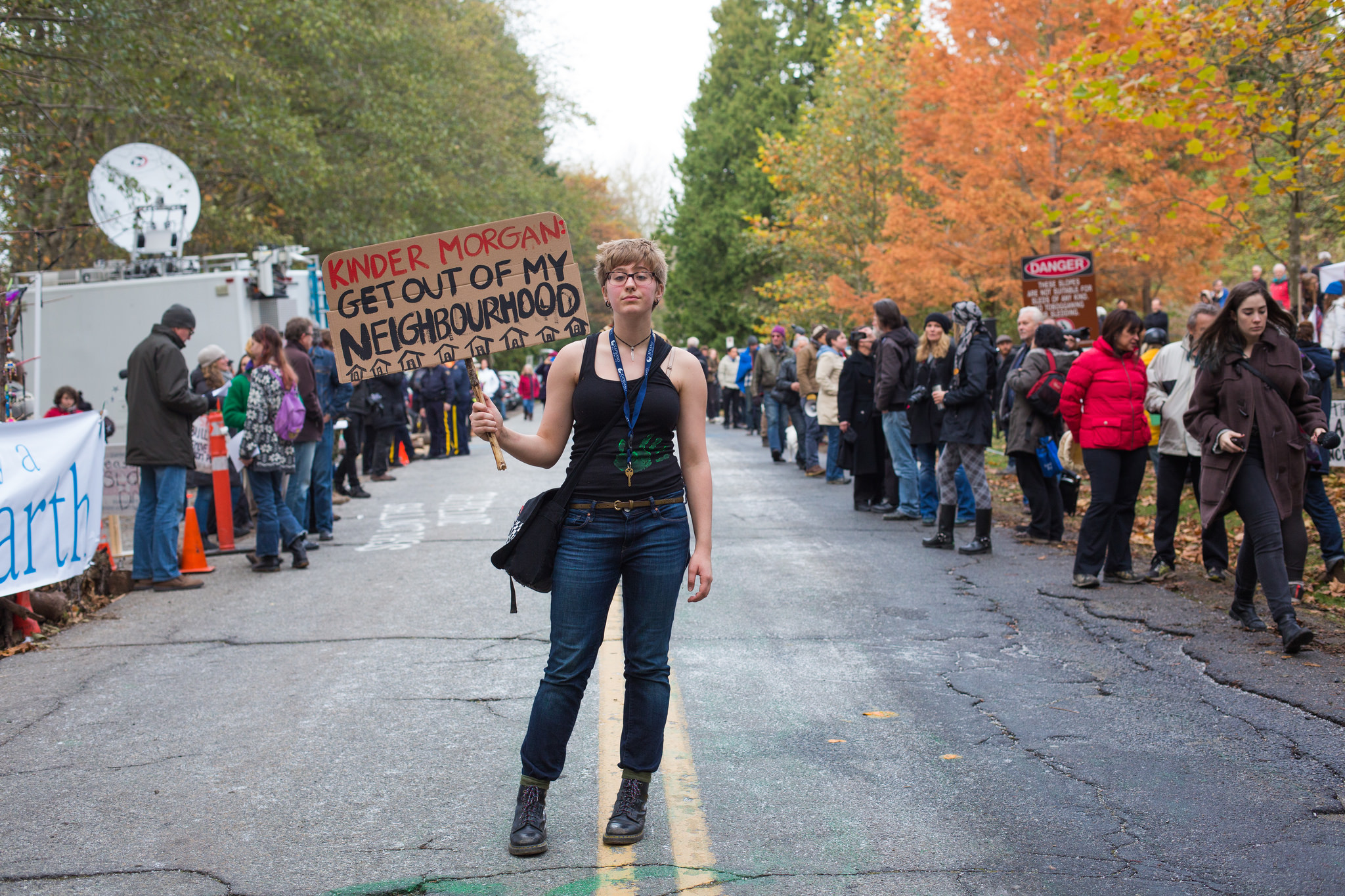Allowing wealthy corporations or powerful government agencies to launch baseless lawsuits against citizens who speak out against them is putting a chill on free expression in B.C. and there is a growing need for legislation against SLAPP suits, says the B.C. Civil Liberties Association.
It is time to fight back against Strategic Lawsuits Against Public Participation (SLAPP), which aim to intimidate and silence critics by landing them with the often-unmanageable cost of defending themselves against an unwarranted lawsuit, said Micheal Vonn, BCCLA policy director. The suits are undermining B.C.’s democratic health, she added.
The BCCLA is aiming to pressure the provincial government to bring in anti-SLAPP legislation, similar to changes introduced last year in Ontario, to help those threatened with legal action defend themselves against those with powerful financial interests and deep pockets.
“We need a concerted movement for people to make their voices heard. We need to explain what SLAPP is, what it does, what devastation it can cause and how it skews and distorts the political process,” Vonn said.
“There is the ability to bring a suit that has zero merit and it could be weeks in court before it comes to the crux of the argument, and by that time, you may have spent your whole life savings,” said Vonn. Corporations are careful to frame lawsuits in such a way that basic protections against “frivolous or vexatious” lawsuits do not click in until the people being sued have already mortgaged their homes or gone deep into debt.
“It is too late even if you win, because the process is the punishment,” she said.
Other jurisdictions, from Quebec to Texas, have anti-SLAPP legislation. In 2001, in the dying days of the former NDP government, it enacted anti-SLAPP legislation.
But the law was repealed five months later by the newly elected BC Liberal government, which argued it would lead to a “protest culture.”
Last year, the NDP unsuccessfully tried to reintroduce anti-SLAPP legislation again and the issue remains on the NDP to-do list as the province heads into a spring election.
“People must be able to have their voices heard without the threat of expensive legal action,” said New Democrat justice spokesman Leonard Krog, when he introduced the motion. “The rights of free speech and peaceful assembly are absolutely fundamental to any democratic society.”
A Justice Ministry statement in response to questions from DeSmog Canada said the province has mechanisms for dealing with improper lawsuits or abuses of legal process.
“These include court rules allowing for the early dismissal of frivolous claims, summary judgments, security for costs and awards of costs where a lawsuit is found to be without merit,” said the emailed statement. “These mechanisms work to protect the public from abuses of legal process and ensure British Columbians can participate in public discussion without fear of retribution.”
Vonn disagrees.
“There has been a growing aggressiveness around SLAPPs,” Vonn said. “It has certainly affected environmental groups — but not just environmental groups — who have found themselves deeply hampered in public participation by having to deal with these suits,,”
Recent cases that raised questions include:
• A $6.6-million lawsuit launched by Kinder Morgan against five members of the group Burnaby Residents Opposing Kinder Morgan Expansion. The suit was later dropped with the company picking up court costs.
• A lawsuit launched by Taseko Mines against opponents of its proposed tailing plan at the New Prosperity mine. The company lost, and the B.C. Supreme Court awarded special costs to the defendants.
• BC Hydro’s civil suits against six protest campers at the Site C dam site, which lawyers have said has the elements of a SLAPP suit. BC Hydro denies the claim, saying it supports protests that do not disrupt construction;
• The numerous legal letters sent to Shawnigan Lake residents who oppose a contaminated landfill site operated by South Island Resource Management Ltd.
“These are people like your neighbour, who are speaking their minds about something that affects them deeply,” Vonn said.
BCCLA and others working towards anti-SLAPP legislation envisage rules that would ensure early access to the court system to weed out potential SLAPP suits.
“The ultimate goal here is to basically level the playing field to make sure parties who are the targets of these sorts of suits have access to the courts early and they can present to the court to say why they think it’s a SLAPP suit and what remedy they are seeking,” said Chris Tollefson, Hakai chair in environmental law and sustainability at the University of Victoria and co-founder of the Pacific Centre for Environmental Law and Litigation.
With a fast-track procedure it would then be up to the court to give the case special scrutiny and decide whether there should be an early dismissal, he said.
“I think there’s a very significant issue of democracy in play here if we think of democracy as being a system where people are not only protected, but encouraged to express themselves even in ways that might be controversial, in ways that challenge government or private companies. If that is something that we are serious about, we need to take steps to protect that wherever there’s a threat,” Tollefson said.
Enacting legislation should be an issue that crosses party lines, he said.
“This should not be party political. There should be no question really that this is something that one needs to do regardless of what party you support.” ![]()
Read more: Rights + Justice
















Tyee Commenting Guidelines
Comments that violate guidelines risk being deleted, and violations may result in a temporary or permanent user ban. Maintain the spirit of good conversation to stay in the discussion.
*Please note The Tyee is not a forum for spreading misinformation about COVID-19, denying its existence or minimizing its risk to public health.
Do:
Do not: